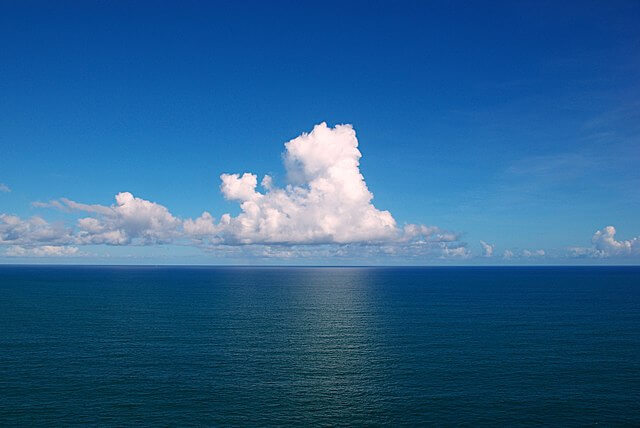
Melting Antarctic ice is causing a significant slowdown in deep ocean currents, which could have a disastrous impact on the climate, warns a report published in the journal Nature. Australian scientists suggest that the deep-water flows that drive ocean currents could decline by 40% by 2050. These currents carry essential heat, oxygen, carbon, and nutrients around the world, and a decrease in their strength could reduce the ocean’s ability to absorb carbon dioxide from the atmosphere. Moreover, it could impact marine ecosystems and Antarctica itself.
Previous research has suggested that a slowdown in the North Atlantic current could cause Europe to become colder. The Earth’s ocean currents network is partly driven by the downward movement of cold, dense saltwater towards the sea bed near Antarctica. However, as fresh water from the ice cap melts, sea water becomes less salty and dense, which slows the downwards movement. Scientists point out that these deep ocean currents or “overturnings” have been relatively stable for thousands of years in the northern and southern hemispheres, but the warming climate is disrupting them.
The study lead, Professor Matthew England, warns that if global carbon emissions continue at the current rate, the Antarctic overturning will slow by more than 40% in the next 30 years, and collapse could be imminent. The 2018 Atlas Study found that the Atlantic Ocean circulation system was weaker than it had been for more than 1,000 years, and it had changed significantly in the past 150. Changes to the conveyor-belt-like Atlantic Meridional Overturning Circulation (AMOC) could cool the ocean and north-west Europe and affect deep-sea ecosystems.
The report also highlights how the slowdown would affect the ocean’s ability to absorb carbon dioxide from the atmosphere. Dr Adele Morrison, who contributed to the report, explained that as ocean circulation slows down, water on the surface quickly reaches its carbon-absorbing capacity and is not then replaced by non-carbon-saturated water drawn to the surface from greater depths.
Scientists spent 35 million computing hours over two years to produce their models, which assumed that greenhouse gas emissions would continue their current path. If they decrease, this could lessen the amount of ice melting and slow the decline in the ocean current. However, the results suggest that deep water circulation in the Antarctic could slow at twice the rate of decline in the North Atlantic. “It appears to be kicking into gear right now. That’s headline news,” says climatologist Alan Mix from Oregon State University, a co-author of the latest Intergovernmental Panel on Climate Change (IPCC) assessment.
The report highlights that the impact of Antarctic meltwater on ocean currents has not yet been factored into IPCC models on climate change. However, it is expected to be considerable, according to Prof England. “If the oceans had lungs, this would be one of them,” he says.
A slowdown of the southern overturning could have an impact on marine ecosystems and Antarctica itself, warns Dr Morrison. “Overturning brings up nutrients that have sunk down to the bottom when organisms die, to resupply nutrients for the global ecosystem and fisheries,” she says. “The other larger implication that it could have is a feedback on how much of Antarctica melts in the future. It opens a pathway for warmer waters which could cause increased melt, putting more meltwater into the ocean and slowing down circulation even more.”
——————————————————————————
At Natural World Fund, we are passionate about stopping the decline in our wildlife.
The declines in our wildlife is shocking and frightening. Without much more support, many of the animals we know and love will continue in their declines towards extinction.
When you help to restore a patch of degraded land through rewilding to forests, meadows, or wetlands, you have a massive impact on the biodiversity at a local level. You give animals a home and food that they otherwise would not have had, and it has a positive snowball effect for the food chain.
We are convinced that this is much better for the UK than growing lots of fast-growing coniferous trees, solely to remove carbon, that don’t actually help our animals to thrive.
This is why we stand for restoring nature in the UK through responsible rewilding. For us, it is the right thing to do. Let’s do what’s right for nature!
Support our work today at https://naturalworldfund.com/ and join in the solution!

